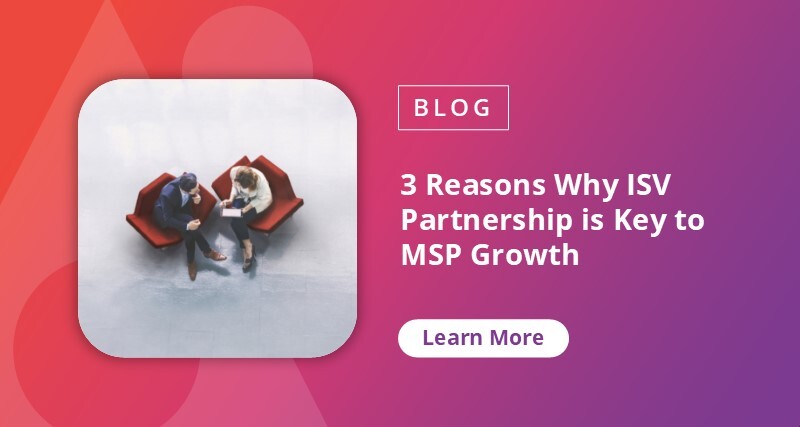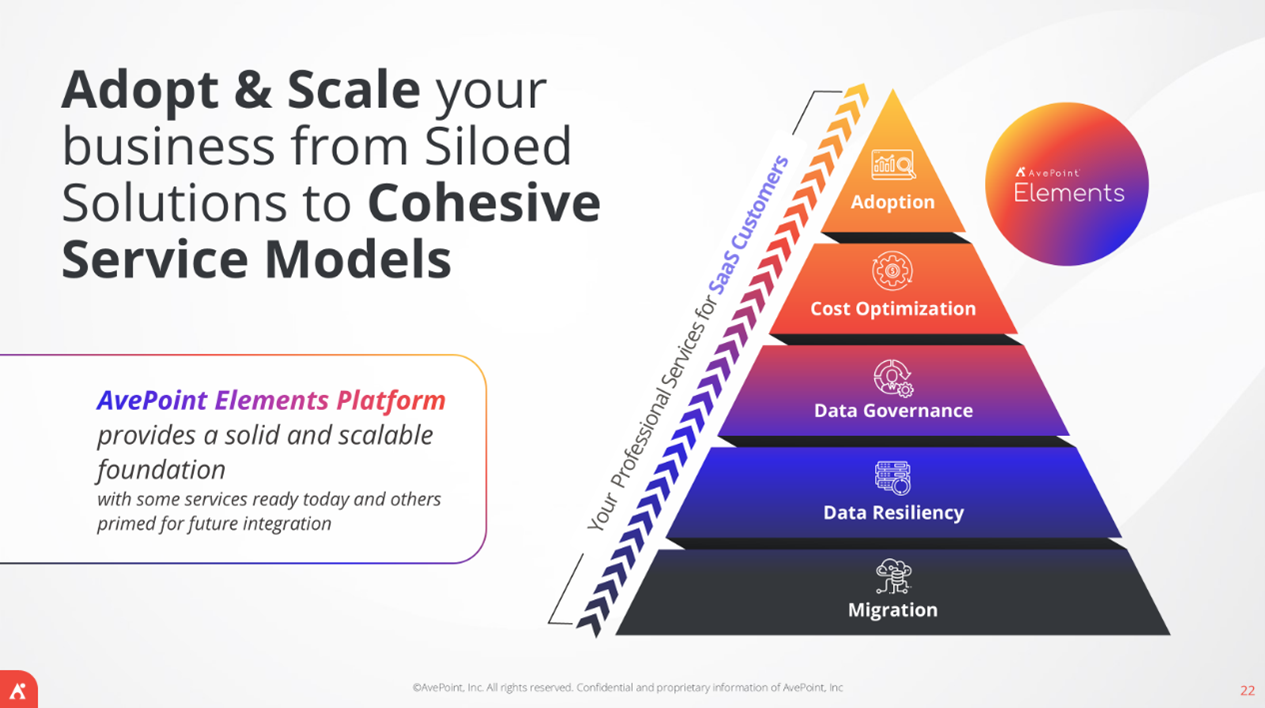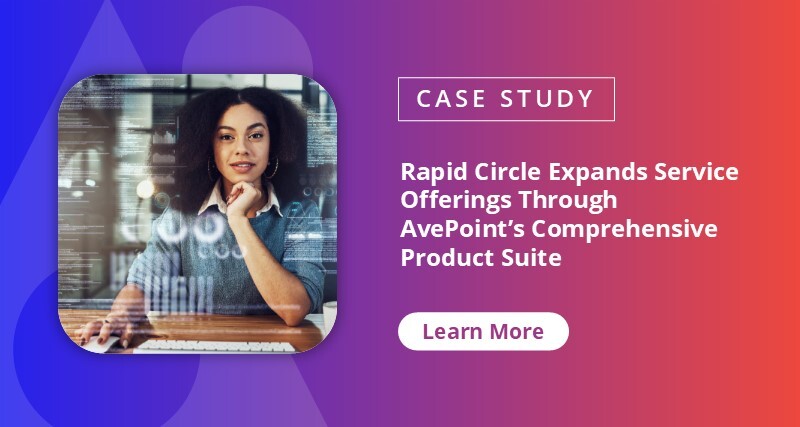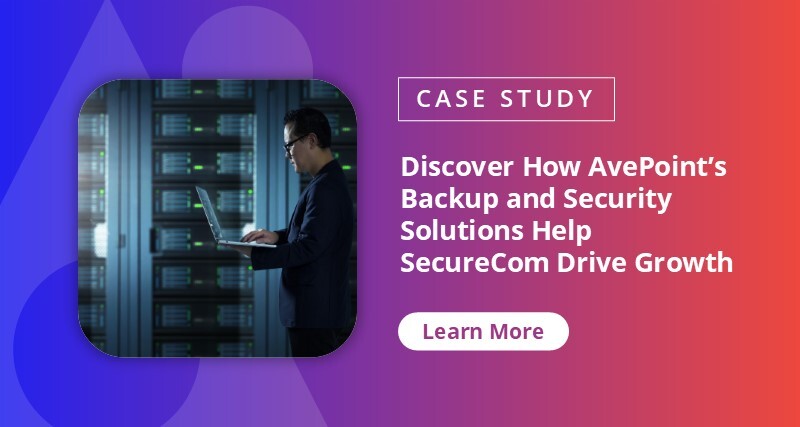From Chaos to Clarity: Consolidating with the Right Vendor for MSP Success


In our previous blog, we explored the many benefits of vendor consolidation for MSPs, emphasizing streamlined operations and enhanced service delivery. But there’s more value to vendor consolidation, such as making strategic business alignment and expanding services much easier, in effect, allowing for more profits for MSPs.
To make this happen, tactical relationships are crucial. Teaming up with the right vendor that can provide a complete suite of solutions in a single easy-to-manage platform can help in driving operational excellence and sustainable growth for MSPs, adding business value for the long term.
In this blog post, we’ll discuss what MSPs should look out for when selecting a vendor as they move toward consolidation.
MSP-Vendor Business Alignment is a Must
MSPs may fail to drive growth if their vendors’ business goals are not aligned with theirs. For example, weak vendor commitment indicates that a vendor would not likely be around to help support or develop MSPs’ products or services in the foreseeable future. Beyond disrupting operations, this lack of commitment would inevitably leave a negative impact on MSPs' clients. Long-term reliability therefore ensures business continuity and reduces the risk of unexpected service interruptions.
Without vendor consolidation, the tasks of validating vendor commitment and aligning business goals become more complicated and challenging for MSPs. The more vendors an MSP has to interface with, the more complex the tasks of managing relationships and ensuring alignment with each vendor’s business goals. This can lead to inefficiencies and potential misalignments that hinder the overall performance and growth of the MSP.
By tactfully focusing on select vendors, MSPs stand to gain crucial advantages that can push them and their clients toward achieving performance targets:
Quality of Support
Committed vendors can provide high-caliber support, such as timely updates, effective troubleshooting, and proactive communication. This ensures, for instance, that potential risks like data breaches or unpatched vulnerabilities are nipped in the bud.
Resource Allocation
A consolidated set of vendors who share the same vision can improve resource allocation by reducing the administrative overhead associated with managing multiple independent software vendors (ISVs). For example, consolidating transactions through a single marketplace simplifies procurement, allowing financial and human resources to be focused on core business operations like cybersecurity, strategic planning, and training and development.
Sustainable Innovation
Strategic alignment between an MSP and a consolidated set of vendors facilitates smoother collaboration and the development of new technologies by creating a unified approach to problem-solving and innovation. By aligning strategies, MSPs can quickly adapt to emerging technologies, ensuring their clients always have access to the latest advancements without the friction of managing multiple disparate vendor relationships.
Competitive Edge
Committed vendors invest not just in consistent services but also in relevant improvements, helping MSPs maintain a competitive advantage by offering cutting-edge solutions.
Client Satisfaction
Alignment with vendors enables MSPs to deliver better service to their clients and resolve issues faster, thereby empowering them to maintain higher levels of customer satisfaction.

Consolidating Vendors for Expanded Products and Services
When MSPs strategically scale their business portfolio by adding services, vendor consolidation becomes a critical enabler of efficient growth. By reducing vendor complexity, MSPs can more effectively introduce new services and technologies without becoming bogged down by multiple vendor relationships, integration challenges, and disparate technological ecosystems.
Consolidating vendors is not just a cost-saving strategy but also a fundamental approach that can optimize portfolio expansion for MSPs, resulting in business advantages:
Streamlined Technology Ecosystems
As businesses seek to scale their service offerings, a consolidated vendor approach provides a streamlined pathway to introducing new technologies and services. By carefully selecting strategic vendor partners, MSPs can create a more coherent, integrated technology ecosystem that supports seamless service development, reduces implementation friction, and enables more rapid and efficient portfolio growth across multiple technology domains.
Stronger Market Differentiation
In addition to expediting portfolio growth and boosting services, a consolidated number of vendors empowers an MSP to deliver these innovations more effectively as they have to manage less vendors and can simplify transactions. This not only helps to establish an MSP as dependable but also helps differentiate them in a crowded market, enabling them to attract clients who are on the lookout for pioneering and comprehensive IT solutions.
For example, an MSP that traditionally offers network management and cybersecurity services can expand their portfolio to include cloud services, AI-driven analytics, and Internet-of-Things (IoT) solutions. As a result, the same MSP can attract businesses looking for comprehensive IT solutions under one roof. Similarly, a manufacturing company might be seeking IoT solutions for predictive maintenance, while a retail business might be interested in AI-driven analytics for customer insights. By offering these new technologies, an MSP can then create new market streams, providing them with a competitive edge and driving immediate growth.
The Power of AvePoint's Platform
Managing multiple solutions from one platform is easier when partners work with just one vendor. For MSPs seeking to consolidate their vendors and streamline operations, AvePoint’s platform offers a powerful, integrated platform. By unifying key services such as security, data governance, and employee experience, AvePoint empowers MSPs to deliver exceptional value to their clients without worrying about fragmented services and inefficiencies:
Migration
The platform simplifies the migration of legacy content into secure environments, supporting analysis, classification, and tagging of data. This ensures smooth transitions and continuity of services, allowing MSPs to efficiently migrate client data with minimal disruption.
Data Resiliency
AvePoint Elements includes tools for managing and optimizing cloud resources, helping MSPs reduce costs and increase profitability. Features like continuous monitoring and Azure resource management ensure that every dollar spent contributes to growth and efficiency.
Data Governance
The platform offers robust data governance solutions, enabling MSPs to manage and protect customer data across multiple SaaS platforms. Automated processes and AI-driven data readiness help maintain compliance, streamline data management, and minimize risks.
Cost Optimization
AvePoint Elements includes tools for managing and optimizing cloud resources, helping MSPs reduce costs and increase profitability. Features like continuous monitoring and Azure resource management ensure that every dollar spent contributes to growth and efficiency.
Adoption and Analytics
AvePoint Elements supports digital workplace enablement, ensuring seamless adoption and utilization of collaboration tools like Microsoft Teams. The platform provides detailed analytics to track adoption rates and user engagement, helping MSPs drive higher productivity and satisfaction among their clients.
Through AvePoint Elements, MSPs can manage all these solutions in a single platform, helping streamline operations, automate processes, and optimize costs across multiple customer environments — including Microsoft, Google, and Salesforce.
Key features of the integration include the following:
- Central command center: AvePoint Elements serves as a central hub for managing multiple customer environments, allowing MSPs to control and oversee operations efficiently.
- Automation and standardization: The platform enables automation and standardization of services, reducing manual efforts and allowing MSPs to scale their operations more adeptly.
- Seamless API integrations: With scalable provisioning and seamless API integration, AvePoint Elements ensures enhanced service delivery and operational efficiency.
- Service health and compliance monitoring: MSPs can enhance client satisfaction through aggregated service health, web-based reports, and compliance monitoring.
Innovative services: AvePoint Elements offers innovative services such as AI data readiness and digital workplace enablement, which help MSPs expand their service offerings.

In addition to these features, AvePoint’s API integrations, such as Backup API and Professional Services Automation (PSA) integrations deliver significant benefits for MSPs:
- Improved performance and efficiency: The Backup API, such as the Microsoft Graph API used for OneDrive, enhances backup performance and focuses on protecting content more efficiently. This allows MSPs to handle large volumes of data with better performance and reliability.
- Streamlined operations: PSA integrations enable MSPs to manage customer environments more effectively by facilitating automated service activation, customer management, and support ticket creation, thereby also reducing manual efforts and operational overhead.
- Enhanced data protection: AvePoint’s API integrations support comprehensive data protection across multiple platforms like Microsoft 365, Google, and Salesforce. This includes backup and restore capabilities for various object types independently, ensuring robust data governance and security.
- Scalability and provisioning: Seamless API integrations and scalable provisioning optimize service expansion for MSPs. This allows for the automation and standardization of processes, which simplifies management across multiple customers and increases margins.

By relying on a platform approach rather than a variety of products, businesses are better able to address a broader range of challenges. At the end of the day, any single product is designed to tackle a specific problem area, such as task management or communication. Realistically speaking, however, businesses typically face multiple challenges, which could lead to the use of an excessive number of tools to help solve multiple operational problems. In the case of MSPs, this could mean managing several concerns per business, multiplied by the number of their clients. In contrast, because a platform is a broader construct built to address multiple problem areas, leveraging a platform approach provides some level of extensibility for additional customization.
With a platform approach, MSPs gain significant strategic advantages. Thanks to their capability to ensure consistency across different applications, platforms provide a common set of services and enhance both efficiency and user experience. This unified approach then enables MSPs to address both current and future challenges without the need for repeated evaluations of new solutions as they face new challenges.
The advantages of adopting a platform approach are also enduring and can yield significant long-term benefits, including sustainable growth. Implementing a platform approach like that of AvePoint boosts service delivery by empowering MSPs to deliver comprehensive and seamless solutions to their clients. When MSPs can efficiently manage data security, automate governance, and ensure compliance for businesses, they also enhance client satisfaction and their own productivity. A holistic approach, therefore, supports end-to-end delivery, ensuring that clients can fully leverage their technology investments for better outcomes.
This is beneficial for particular areas and processes like tenant management, compliance, and workspace onboarding. For instance, MSPs can use the Confidence Platform for multiple clients in a single platform and get a single-pane view of configuration drifts, allowing them to easily attend to environments that need attention.
Trust and reliability go a long way in the MSP-client relationship. By leveraging a unified platform, MSPs can position themselves as trusted advisors to their clients. AvePoint’s platform and comprehensive solutions help MSPs address various customer pain points effectively, from data protection to digital transformation. In turn, this elevates an MSP’s role from just another service provider to a strategic partner who delivers valuable contributions to a client’s business growth and success. For example, MSPs can provide unique insights and expert guidance on adopting new technologies and mitigating evolving risks like ransomware, thereby building a long-term, trust-based relationship with clients.
Real-World Benefits of Consolidation with AvePoint
AvePoint’s partnership with Rapid Circle exemplifies the real-world benefits of vendor consolidation with AvePoint and the use of a platform approach.
AvePoint’s multi-tenant management platform, AvePoint Elements, significantly streamlined Rapid Circle’s operations, enabling them to manage multiple customers without compromising control, allowing for efficient trial spin-ups, client onboarding, service configuration, license management, and reporting. This ease of use and scalability was highly valued by Rapid Circle’s customers, who appreciated the multiple daily backups and the ability to trigger on-demand backups.

In the case of Securecom, a managed security services provider (MSSP) in New Zealand, they used Elements to gain a holistic view of all their customers’ environments, streamlining management and driving efficiencies. This platform approach enabled Securecom to proactively monitor and remediate policy violations in Microsoft 365, receiving near-real-time updates and alerts to prioritize and address risks efficiently. The continuous improvements and feature updates of AvePoint’s SaaS solutions ensured that Securecom could keep pace with market demands and customer needs. The 24/7 local support provided by AvePoint further aligned with Securecom’s service model, enhancing their ability to deliver top-quality and reliable solutions to their customers. This partnership has been critical to Securecom’s success and growth, demonstrating the significant advantages of consolidating with AvePoint.

Achieve Sustainable Business Growth with AvePoint
Vendor consolidation opens the door to unprecedented and long-term growth for MSPs, offering significant advantages, including streamlined operations, enhanced service delivery, and cost savings, which are crucial for maintaining a competitive edge. By reducing the number of vendors, MSPs can simplify their transactions and improve efficiency, leading to stronger partnerships and better service quality. Additionally, focusing on a smaller set of vendors allows for deeper expertise and faster issue resolution, ultimately improving client satisfaction.
MSPs looking to harness these benefits should consider partnering with AvePoint. By becoming a partner, MSPs gain access to AvePoint Elements, which can assist in consolidating a suite of solutions in a unified platform. By adopting AvePoint's integrated service model, MSPs can achieve growth and efficiency, positioning themselves as leaders in the market. This cohesive approach not only enhances operational resilience but also enables MSPs to deliver cutting-edge technologies and superior support, driving long-term success and client loyalty.


Andie is a Content Marketing Specialist at AvePoint, covering migration, employee experience, and education technology. With 15 years of experience in B2B communications and content editing, Andie creates content that helps businesses realize the value of their technological investments.


